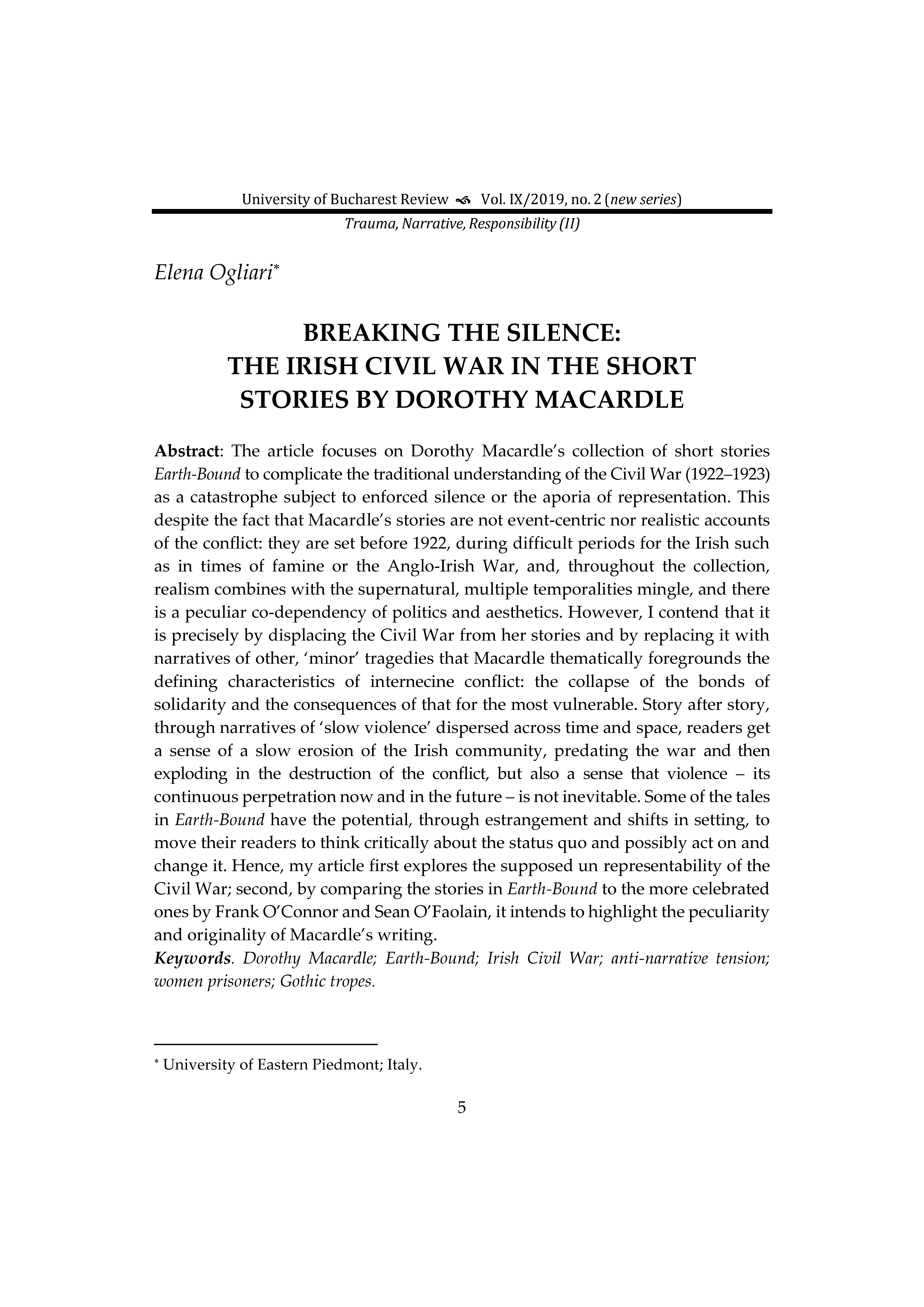BREAKING THE SILENCE: THE IRISH CIVIL WAR IN THE SHORT STORIES BY DOROTHY MACARDLE
DOI:
https://doi.org/10.31178/UBR.12.2.1Keywords:
Dorothy Macardle, Earth-Bound, Irish Civil War, anti-narrative tension, women prisoners, Gothic tropesAbstract
The article focuses on Dorothy Macardle’s collection of short stories Earth-Bound to complicate the traditional understanding of the Civil War (1922–1923) as a catastrophe subject to enforced silence or the aporia of representation. This despite the fact that Macardle’s stories are not event-centric nor realistic accounts of the conflict: they are set before 1922, during difficult periods for the Irish such as in times of famine or the Anglo-Irish War, and, throughout the collection, realism combines with the supernatural, multiple temporalities mingle, and there is a peculiar co-dependency of politics and aesthetics. However, I contend that it is precisely by displacing the Civil War from her stories and by replacing it with narratives of other, ‘minor’ tragedies that Macardle thematically foregrounds the defining characteristics of internecine conflict: the collapse of the bonds of solidarity and the consequences of that for the most vulnerable. Story after story, through narratives of ‘slow violence’ dispersed across time and space, readers get a sense of a slow erosion of the Irish community, predating the war and then exploding in the destruction of the conflict, but also a sense that violence – its continuous perpetration now and in the future – is not inevitable. Some of the tales in Earth-Bound have the potential, through estrangement and shifts in setting, to move their readers to think critically about the status quo and possibly act on and change it. Hence, my article first explores the supposed un representability of the Civil War; second, by comparing the stories in Earth-Bound to the more celebrated ones by Frank O’Connor and Sean O’Faolain, it intends to highlight the peculiarity and originality of Macardle’s writing.





